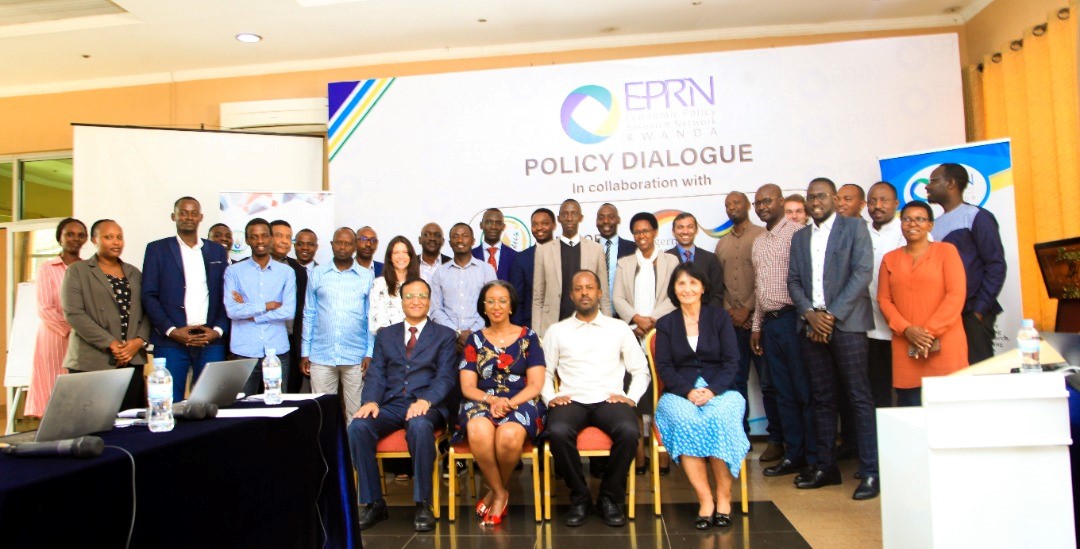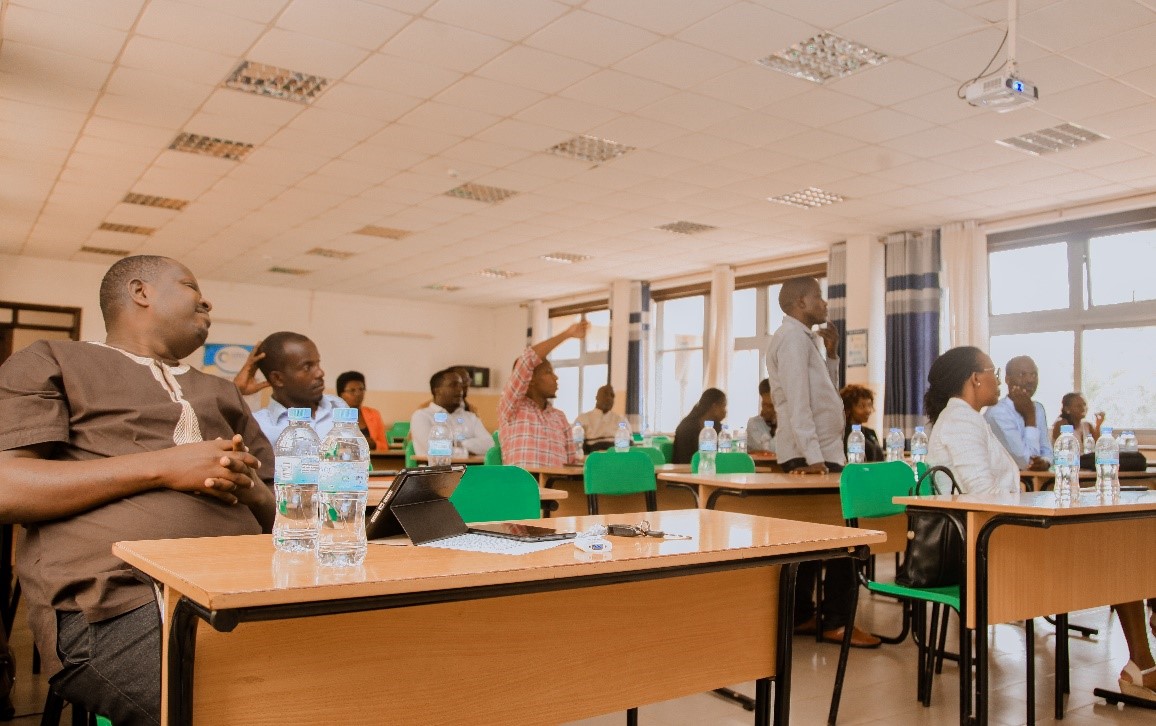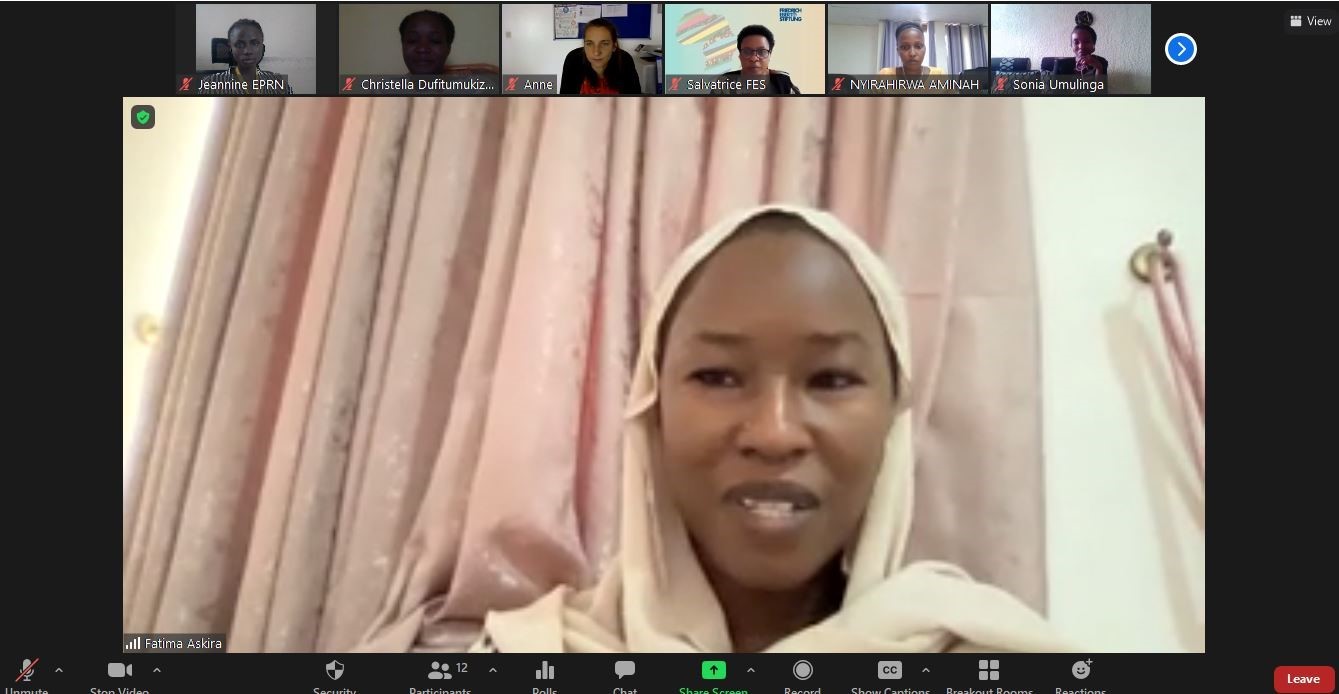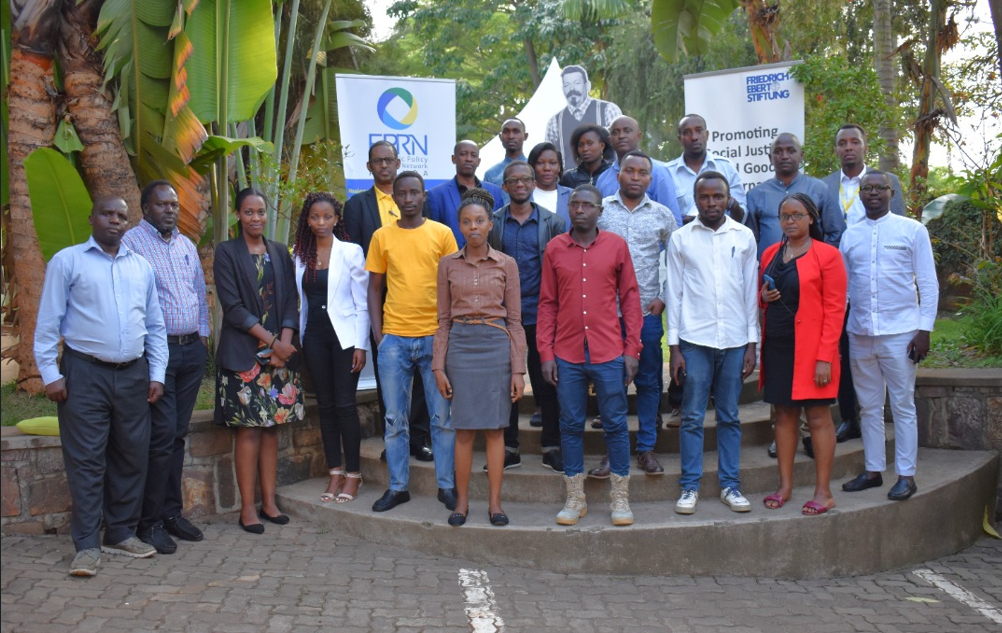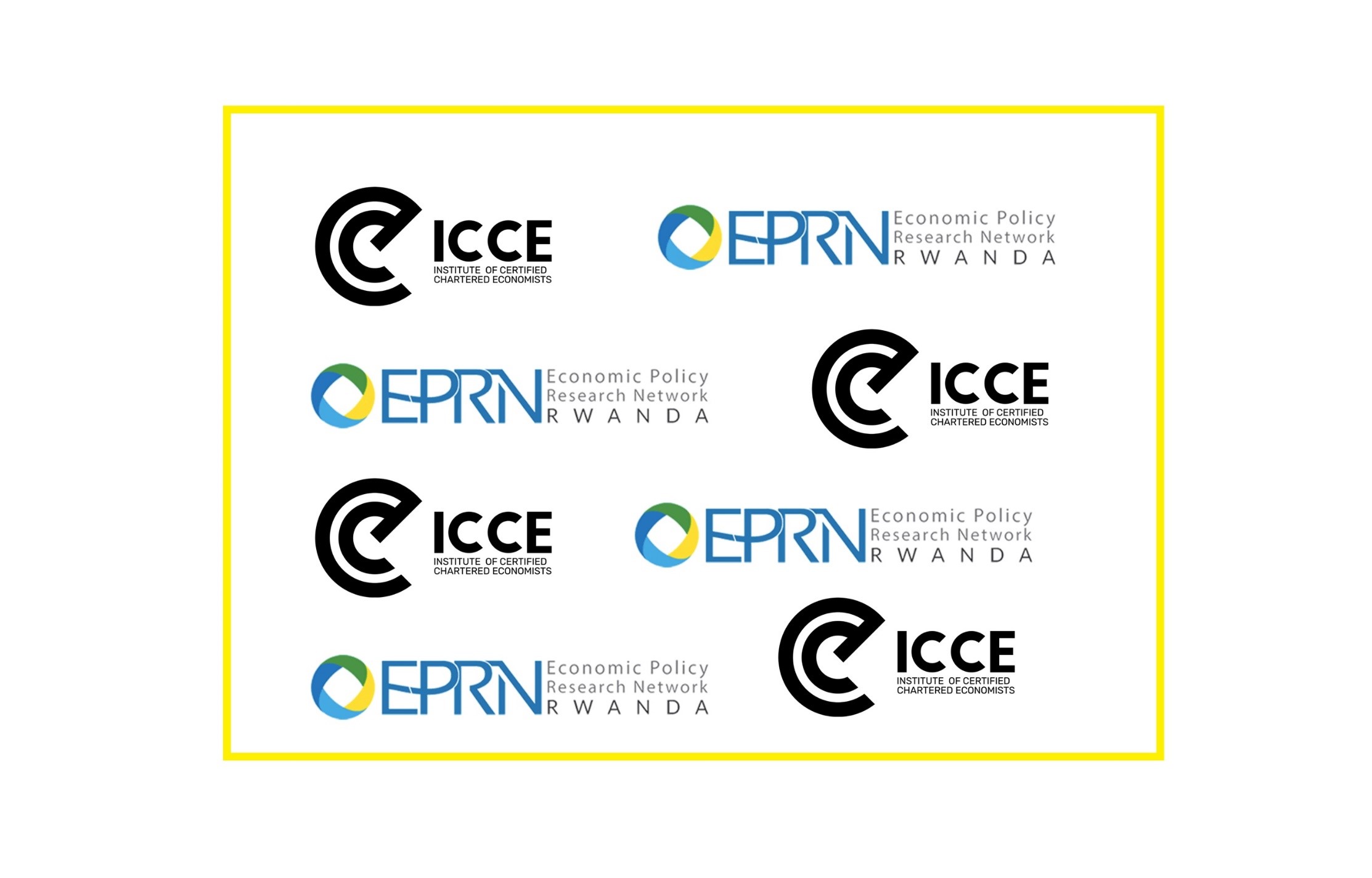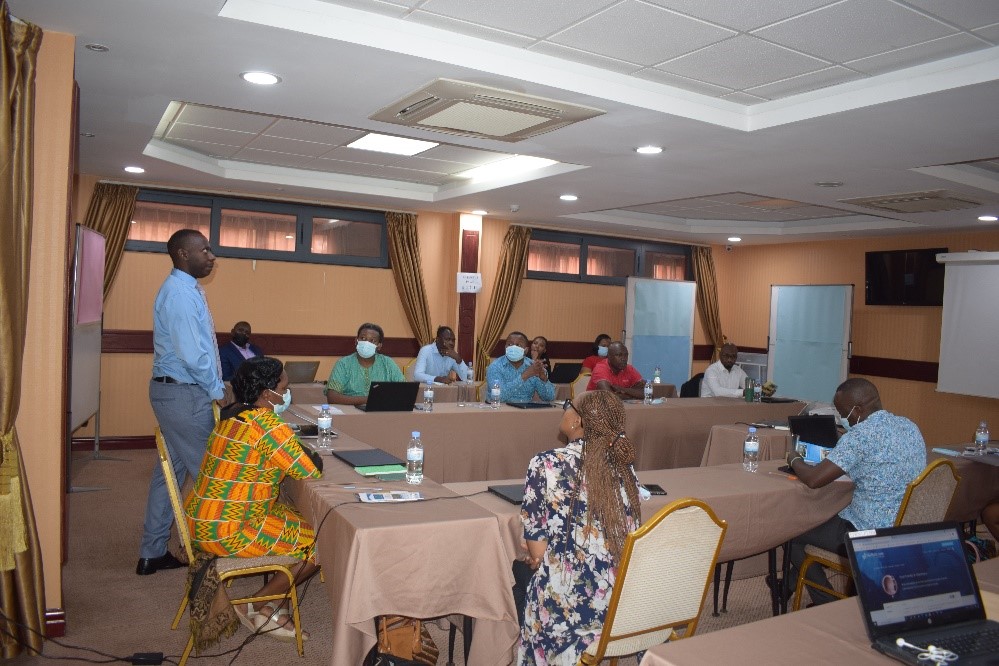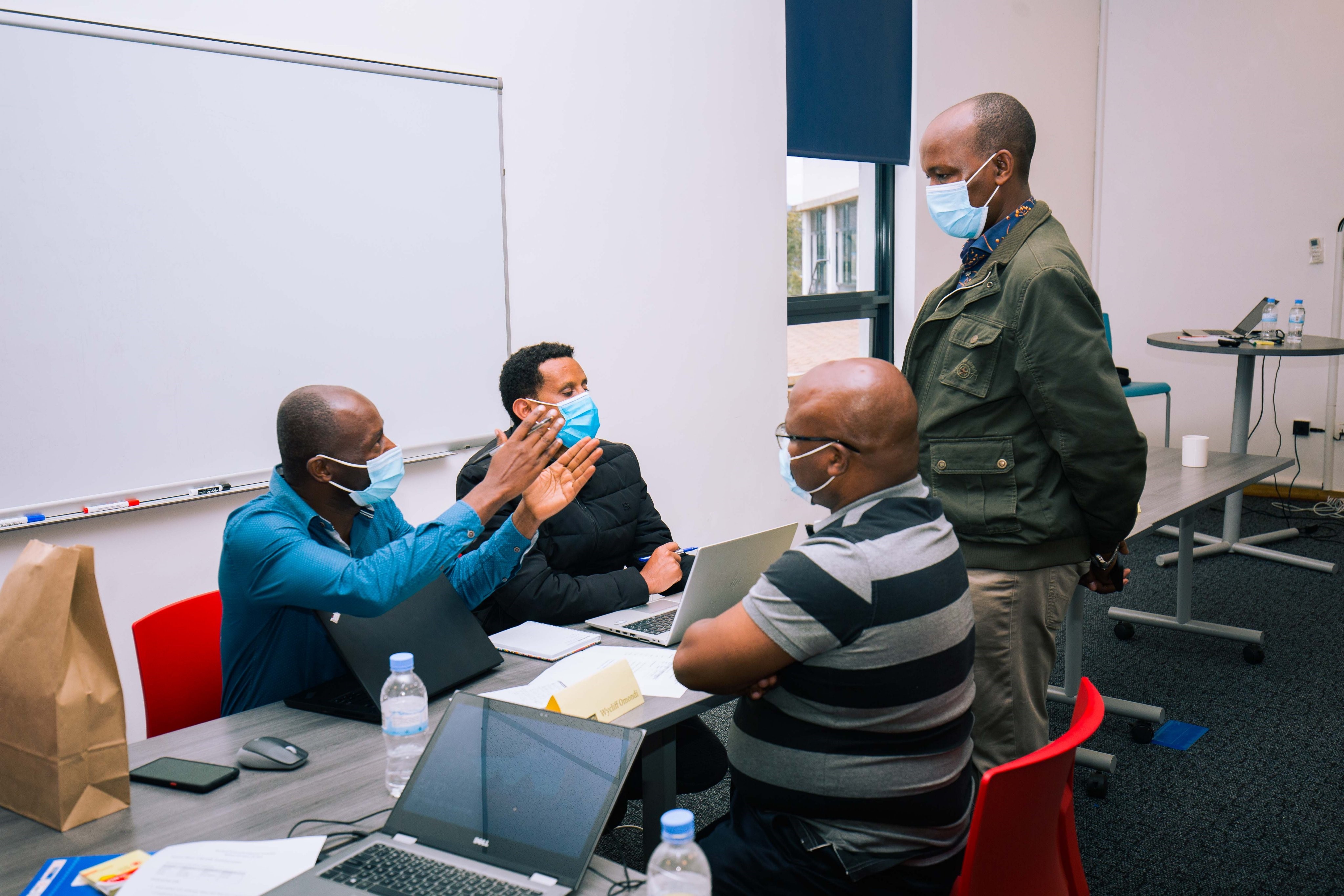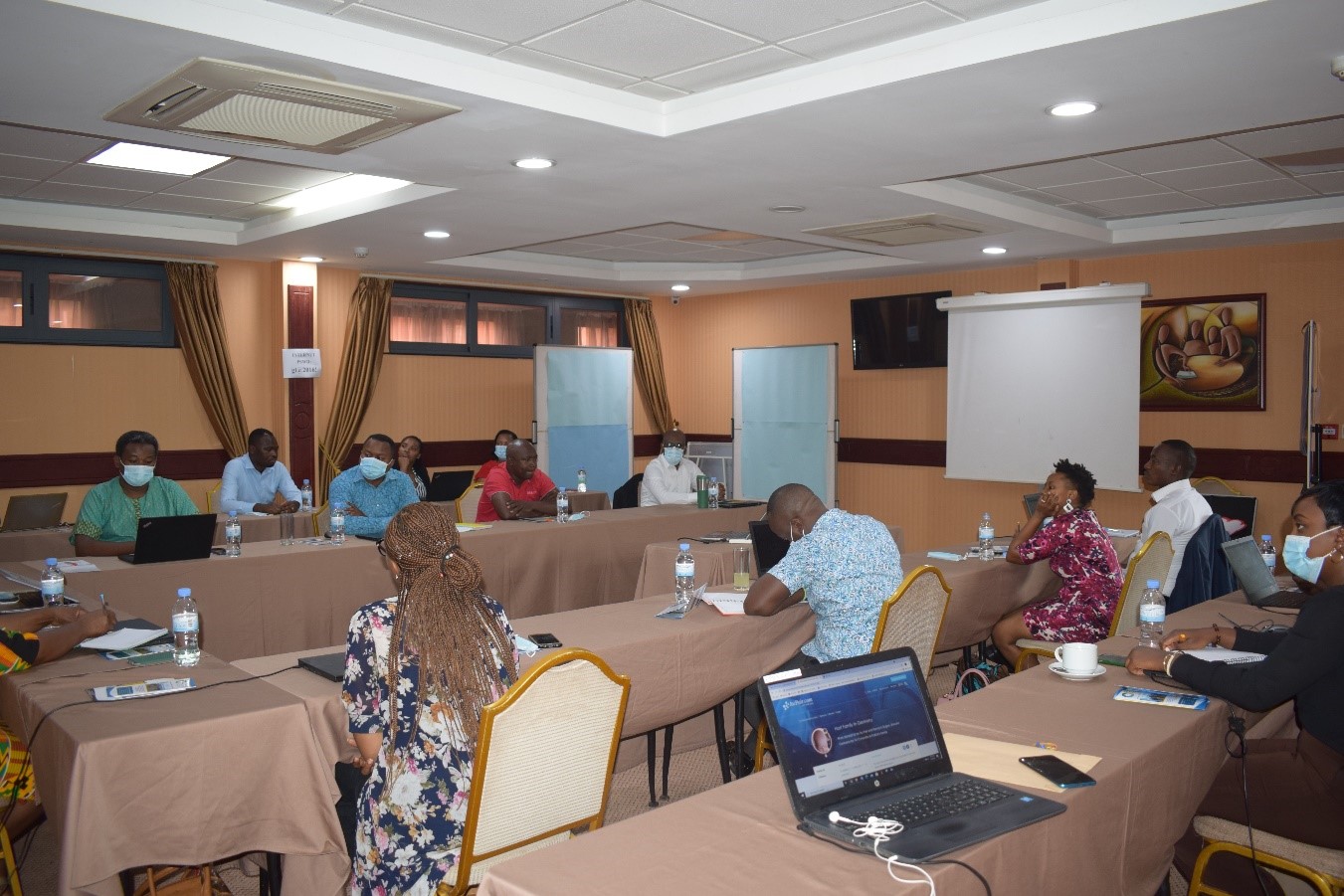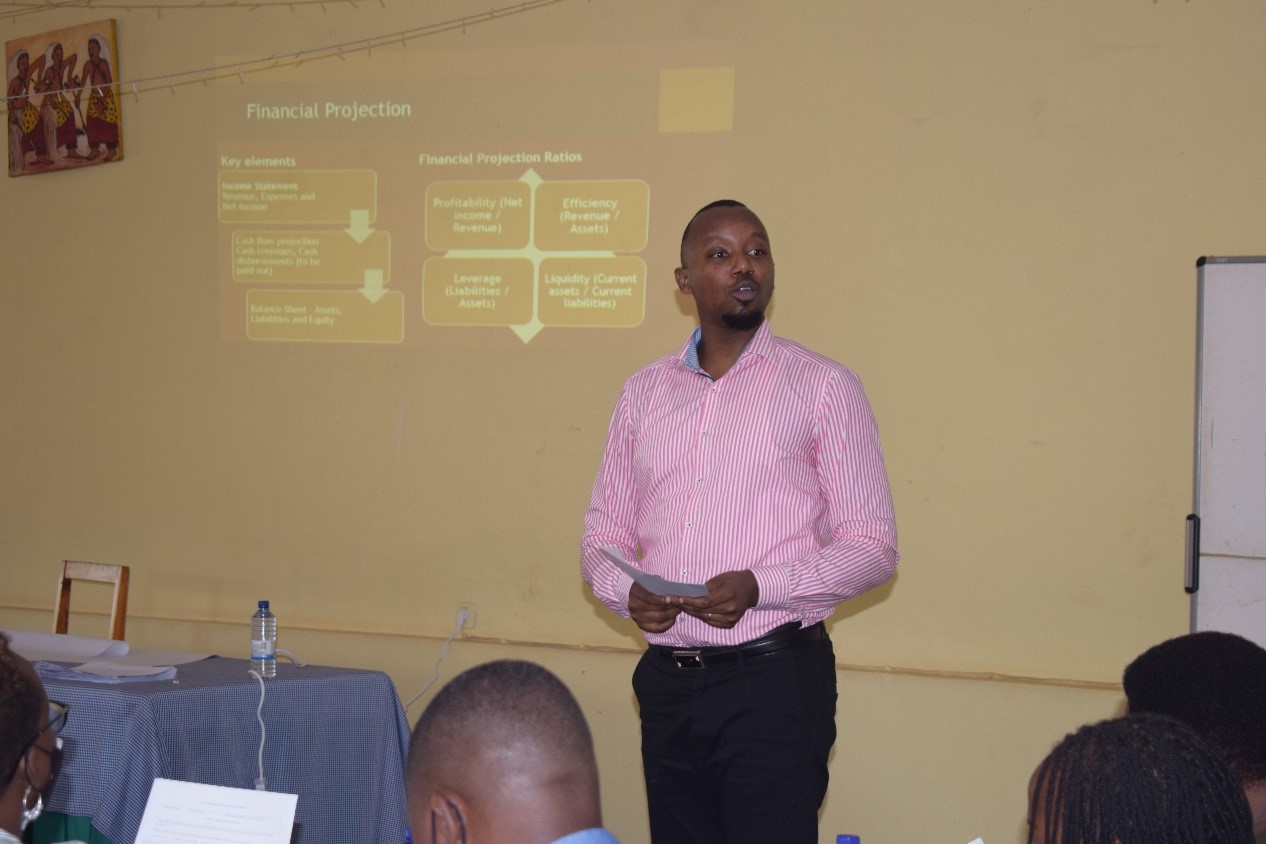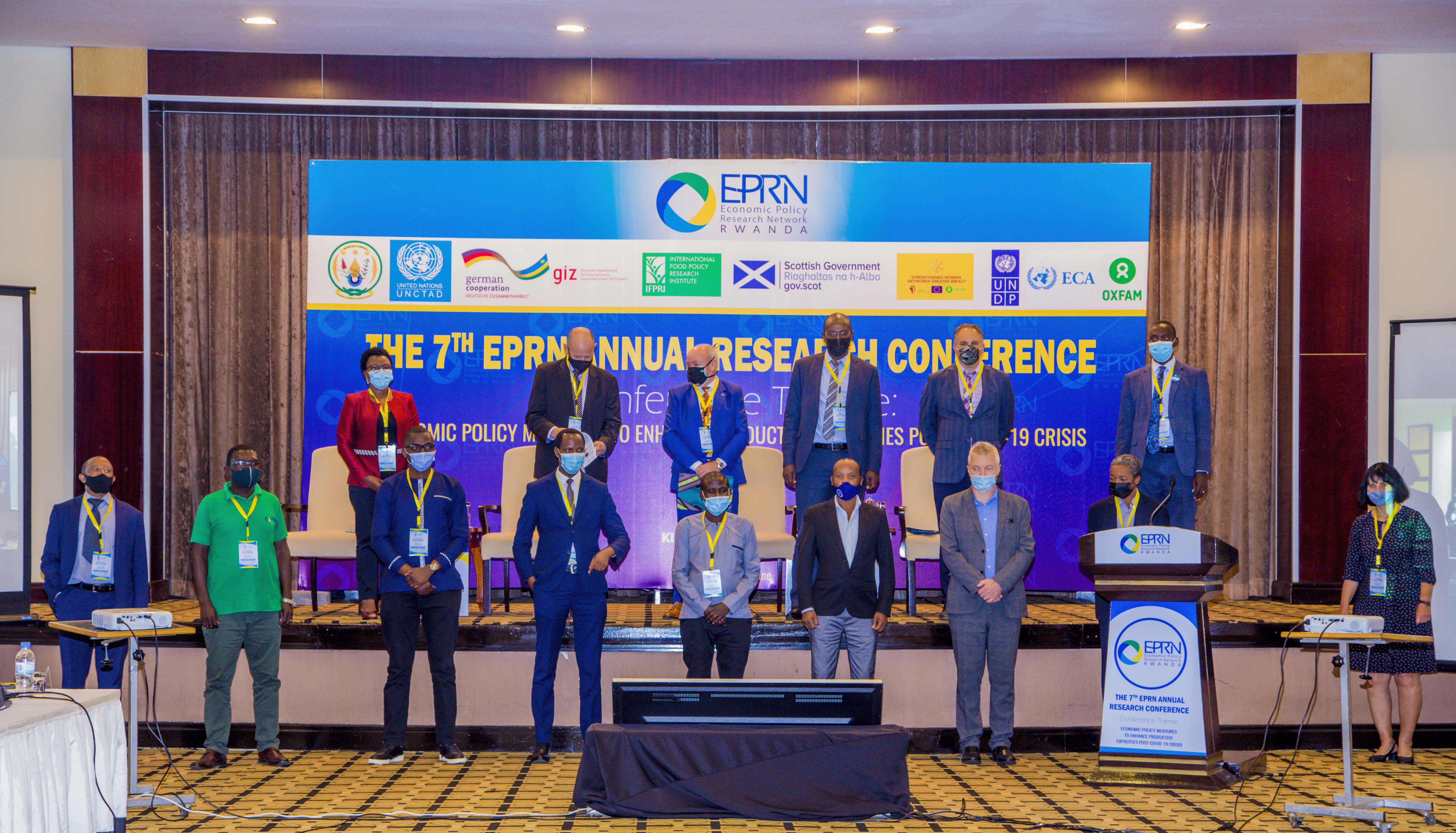PROGRESS OF RESEARCH PAPERS POTENTIAL TO BE PRESENTED DURING THE 8TH EPRN RESEARCH CONFERENCE
• Conference theme : The COVID-19 pandemic in perspective : Policies to accelerate economic recovery for the Rwandan and regional economy
• Dates and Venue : 26th-27th May 2022 in Kigali.
• Progress by January 2022 :
a. Impacts of COVID-19 on Agriculture and Food Systems in Rwanda : This study is being undertaken by Dr. Robert S. NTWITE and will cover two districts “Huye and Nyamagabe”. The aim is to identify the major challenges that the COVID-19 outbreak has brought to the agriculture sector and food systems in Rwanda ; reveal Challenges facing the agriculture sector and food systems ; identify the losses in production costs that farmers had invested in agriculture and the inability to repay the agricultural credits contracted with banks and Suggest policy recommendations to overcome the impacts of COVID-19 on Agriculture and food systems in Rwanda.
b. The effectiveness of Covid-19 related Economic Recovery policies on reviving the Rwandan hospitality industry : This study is being undertaken by Dr. Denys Uwimpuhwe and Dr. Moses Matundura and are at data collection stage. In addition to desk review of the different Covid-19 related economic recovery policies ; face-to-face interviews with five hotels managers in the city of Gisenyi will be conducted. The interviews will be conducted also with the head of RDB’s policy department, and the chairperson of the Rwanda tourism chamber.
c. The effects of COVID-19 on violence against women (VAW) and girls in the Rwanda society (2020-2021) : This study is being undertaken by Dr. Rev Celestin Hategekimana ; and he is on the stage of data collection and throughout data collection, he will use both primary and secondary data through interviewing women and girls who have been victims of violence reported at the police station and other concerned institutions and organizations. The study will also involve local leaders and community opinion leaders as key informants. A participatory and consultative approach will be will help to engage both the victims and the frontline individuals in the fight against violence.
d. Covid-19 impacts on Skills Development in Technical & Vocational Education in Rwanda : This study is being undertaken by Rugumire Makuza Emmanuel and Nasasira Richard. The purpose of the review is to determine the impact of COVID-19 on Rwanda Polytechnic’s service delivery in IPRCs and how learning and teaching in TVET schools in general, were impacted by Covid-19. The findings would inform recommendations on how to build a resilient RP. Preliminary Findings : Online learning was not creditable, but served the purpose of giving students hope that learning would/could continue. Strategic Issues : Structural Unemployment (skills matching) ; Recent studies show that 9 out 10 jobs of the future will require a TVET qualification, Preparing for Revolution 4.0 (new skills, digitization of trades ; new curriculum) ; African Continental Free Trade Area (AfCFTA).
e. Labor markets dynamics during and after COVID-19 : This study is being undertaken by Mr. Faustin Mwambali and Mr. Bizimana Appolinaire. This study is at advanced stage and preliminary findings indicate that according to the Labour Force Survey results of August 2021(Q2), the unemployment rate in Rwanda decreased at 19.4 percent compared to 23.5 percent in May 2021(Q2) Indicating a decrease of 4.1 percentage points. The highest decline was among females (5.4 percentage points) compared to males (2.7 percentage points). Summary of recommended policy option : (a) Fiscal and monetary policies should continue expansionary to make sure that the emerging labour market recovery remains, permitting a rapid recovery to post-crisis employment and jobs creation levels ; (b) Massive active labour market policies should strengthened as way of encouraging massive labour intensive investment and particularly emphasis need to be on short term employment such public works among others ; (c) To recover fully from the pandemic and to create more jobs over the longer term, there is a need to orient policies consistently towards supporting a thriving private sector ; (d) Measures to foster job creation and increase demand for labour need to be introduced in Rwanda should include : provision of employment incentives for more vulnerable categories of people such as women, youth and Persons with disabilities. Those measures include tax holidays, lowering social security contributions among others ; reshape skills development systems in line with lifelong learning goals and post-COVID-19 labour demand, supported by more equal access to digital skills.
f. Analysis on the impact of COVID-19 on Food system transformation in Rwanda : This study is being undertaken by J. Kazungu, A. Munezero and J.Munanura. This study is at final stage. Data was collected from March 2020 to July 2021. Preliminary findings include : Supply chains have been disrupted by limited access to markets for livestock, perishable nutrient-dense food products (fresh vegetables, fruits, fish) ; Food price were a challenge for the poor, as healthy diets are already a luxury for them, further undermining access to healthy and nutritious food ; and Processors face adoption constraints : the high cost of equipment, costs of premix, limited demand and low consumer purchasing powers. Preliminary recommendations : MINAGRI to boost efforts to increase both the quantity and quality of food production in anticipation of future production and market shocks ; Social protection interventions should be complemented by support to rural citizens by, for example, giving agricultural inputs to farmers to increase food-security ; Development partners should engage with government to also include - on equal footing - local CSOs when designing and implementing crises responses ; Development partners should cooperate with government and local CSOs to make sure cash transfers are not duplicated and reach the most in need with special attention to citizens living outside of Kigali ; Targeting of social protection programs should not only be based on areas with high COVID-19 cases but more importantly on existing inequalities such as gender and rural-urban divide and RRA reducing taxes on healthy food produce and processing to encourage healthy food choices where possible as an effective response to the COVID-19 pandemic.
g. Privatizing and digitization of land administration services as a response to Covid-19 : The Rwanda case : This study is being undertaken by Jossam Potel and what top assess whether privatization and digitization of land administration services should be embraced for quick economic recovery. The first draft of the literature of the paper is finished. The author developed Semi-structured questionnaire for data collection and all selected districts are informed about the research through an introduction letter offered by EPRN. Data collection to be completed in the first week of February and proceed with analysis.
h. Challenges associated to healthcare service delivery in Rwanda : Causes, Effects and Overcoming measures during COVID-19 era : This study is being undertaken by Narcisse Ntawigenera and Godefroid Nzeyimana and they are on the stage of data collection whereby Stratified random sampling method will be used to collect quantitative data, while purposive sampling method will be used for qualitative data collection. Sampled respondents will be reached through identified health institutions located in 4 provinces and Kigali City, Ministry of Health, Health Professional Regulatory Bodies, Academic institutions with health-related programs & other stakeholders in the health sector : NGOs and FBOs.
i. Regional integration and trade in the era of COVID-19 : This study is being undertaken by Dr. Mutemberezi Fidele and Christian Nahayo and they are on the step of data collection. Authors are reviewing the existing documents, reports, and collect secondary data from NISR, EAC, and RRA specifically in data governing by the customs department. The aim is to explore impacts of COVID-19 on trade and regional integration process in EAC countries ; and to access recovery mechanisms that have been put in place to encounter challenges.
j. Impact of COVID-19 Pandemic on Business Start-ups, Money Supply, Lending Interest Rate, International Trade, Savings, Investments, and Economic Growth : VAR Model for Rwanda : This study is being undertaken by Mr. Tharcisse NZASINGIZIMANA and Prof. Bruno OCAYA and they a\re finalizing the analysis of the econometric VAR model and its interpretation. Variables that have been used in the econometric model were : lending interest rate (lr), exports (x), imports (m), business start-ups (b), economic growth (y_gr), savings growth (s_gr), investments growth (i_gr) and money supply (m2). The multivariate Granger causality has been estimated that allows the predictability in the sense that a variable y Granger - causes another variable x ; After estimating the causality, the impulse - response function has been estimated as well the identification of the changes occurring on the dependent variable in the case of a shock produced by the independent variable.
k. Consequences of COVID-19 on Girl’s Education in Rwanda, case study of Bugesera district : This study is being undertaken by Mrs. Rosette Nkundimfura. The Specific Objectives of this study are to examine the short and long term effect of COVID-19 on Young women & Girl’s education ; assess the level of academic performance, school dropout and teenage pregnancies among girls and to recommend possible solutions to address identified gaps. The study is at advanced stage and so far some preliminary findings are as follows : (1) Exposure to sexual abuse : Girls being out of schools where they can be constantly guided and occupied, can become more exposed, for example : in lock down 200 girls got pregnant ; (2) Negative peer influence : School children are vulnerable and can be desperate to fit in, so they tend to give many peer-pressure temptations. (3) Increase in child labour : During COVID-19, parents compelled to hunt for means of survival which have prompted some girls to join their mothers in raising income to support the family. (4) Increase in the burden of girls’ household chores : Girls usually are the ones who do most house chores. This poses a big challenge for girls, especially those in transitional classes, making it difficult for them to study and prepare for exams. (5) Increase in the burden of girls’ household chores : Girls usually are the ones who do most house chores. This poses a big challenge for girls, especially those in transitional classes, making it difficult for them to study and prepare for exams.
Doc 1




